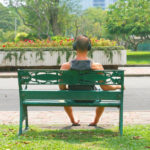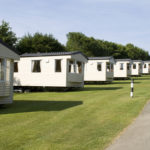COVID-19: Is Sweden’s Strategy Sensible?

It has faced a great deal of criticism from around the world, particularly from its neighbours Norway, Finland and Denmark, but Sweden is refusing to consider a total lockdown in the face of the coronavirus.
The nation’s Prime Minister Stefan Löfven has defended the actions of his government, stressing that far from being COVID-19 denialists, his government is simply following the advice of the country’s health authorities – which essentially say that its better to ‘spike the curve’ and allow everyone to rick infection and develop immunity, while imposing a lockdown on the elderly and frail, than to stretch the issue out for a protected period of time, which can result in far more deaths in the longer term and have catastrophic consequences for the economy.
Only time will tell whether the Swedish approach is a sensible one, but so far the country has refused to put in place a total lock down.
Restaurants and bars are open, playgrounds and schools too, and the government is relying on voluntary action from its people to stem the spread of the virus.
‘Herd Immunity’
The theory the Swedes are following is based on a principle called ‘herd immunity’ which suggests that by letting enough people catch the virus, while at the same time, protecting the most vulnerable – those at high risk of complications (elderly, babies, and anyone with a pre existing medical condition), the entire population will eventually build up an immunity against the coronavirus.
It’s not a widely popular strategy. Most countries around the world, including our own, have instead taken the ‘prevention is better than cure’ approach and are enforcing extreme social distancing and social isolation measures to avoid the spread of Covid-19.
But this too has it’s problems. In many countries, the effects of having personal freedoms severely limited is taking its toll and the backlash has begun. Some populations are now rising up, protesting against the lockdowns and citing infringements to civil rights. Law suits against authorities are also starting to emerge.
There are concerns too, for the mental and emotional wellbeing of people separated from loved ones at this highly stressful time, as well the impact of removing daily interpersonal interactions and routines offered by commuting, work and socialising. We must not forget the serious implications of a long-term shutdown on the national debt and overall economic recovery.
While we’ve seen some early signs that the ‘curve is flattening’ in Australia, as we all adhere to strict new public health regulations, there is still a great deal of uncertainty over whether or not these extreme measures will work in the long run – whether they will have been enough to eradicate the virus when restrictions are eventually relaxed.
In Sweden, people have been encouraged to stay at home, and work from home, and bars and restaurants and public facilities have introduced measures that limit the number of participants at any one time to enable social distancing. Gatherings of more than 50 people have been prohibited and those over 70 have been told to avoid social contact, but people are still allowed to make their own choices based on personal risk assessment. By and large people are allowed to go about their daily lives, and social commentators in the country say that by and large, people are taking social distancing measures seriously – public transport is less crowded, and the city streets are much quieter than normal.
Is the Swedish approach the right one?
However, some of the country’s own health experts and researchers warn that with this relaxed approach Sweden is headed for disaster. The death toll continues to climb, and the numbers per capita are much higher than both Finland and Denmark which both went into lockdown in March.
As of last week, Sweden has 9,141 active cases of the COVID-19 virus 793 people have died out of a population of roughly 10 million people. This equates to about 67 fatalities per one million Swedish citizens, according to the Swedish Health Ministry. By comparison, Norway had 19 deaths per million, Finland seven per million.
Despite publicly declaring that “each country decides what actions to take, based on their own situation and the different stages of the outbreak they are facing,” The World Health Organisation (WHO) has also begun pressuring the Swedish government to “increase measures to control spread of the virus.”
WHO’s concern of course, is not only for the Swedes themselves, but the remainder of Europe.
When one country is not doing the same as its neighbours what are the long-term consequences?
WHO is of the belief that “only an ‘all of society’ approach will work to prevent escalation and turn this situation around.”
But given that there are no real guarantees that either Sweden’s current approach, or the severe lockdowns enacted by the rest of the world is the right solution to the threat of COVID-19, many are eyeing up the Swedish approach with a good deal of envy simply because the Government’s recommendations have focused on education, encouragement and recommendation, rather than handing down severe edicts and draconian enforcement.
The Swedish government has maintained true to the principles of democracy – offering guidance and advice, while relying on its people to make wise choices, and take sensible measures to protect themselves.
“We all, as individuals, have to take responsibility,” says Prime Minister Stefan Löfven. “We can’t legislate and ban everything. It is also a question of common sense.”







